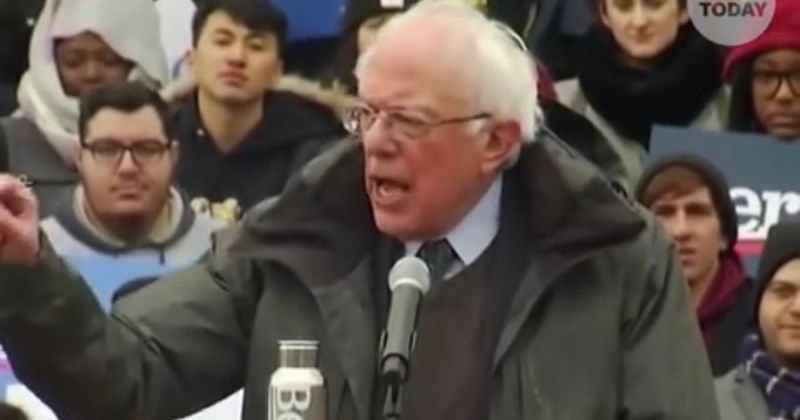Sen. Bernie Sanders took the stage at the Democratic National Convention on Tuesday and exposed what he sees as the rigged process that led to Kamala Harris securing the Democratic nomination for president. Speaking at the United Center in Chicago, Sanders, a vocal critic of the influence of money in politics, lambasted the “billionaires in both parties” for their role in American elections.
The question remains: how many Democrats in the audience or watching from home caught the full weight of his message?
The pivotal moment came more than halfway through Sanders’ fervent speech. After outlining a series of progressive goals, Sanders took a thinly veiled jab at the process that resulted in Harris leading the Democratic ticket in the upcoming election.
“Billionaires in both parties should not be able to buy elections, including primary elections,” Sanders declared, drawing applause from the crowd—though it’s typical for audiences at these events to cheer lines that criticize billionaires.
But who exactly was Sanders targeting with this statement?
On the Republican side, there was a lively, albeit brief, primary contest, with figures like Florida Gov. Ron DeSantis and former U.N. Ambassador Nikki Haley challenging former President Donald Trump for the GOP nomination. In contrast, the Democratic primary was largely uncontested. Party leaders ensured that President Joe Biden faced no significant competition, not even from lesser-known candidates like Rep. Dean Phillips. When Biden’s campaign faltered due to his perceived incompetence, it was the Democratic donor class—the “billionaires” Sanders referred to—that effectively pushed Biden out and placed Harris in his stead.
(It almost seemed orchestrated.)
Sanders’ disdain for the influence of wealth in politics is not new. In previous presidential races, he experienced firsthand the power of the Democratic establishment. In 2020, after winning the New Hampshire primary and Nevada caucuses, Sanders’ momentum was halted when the party establishment rallied behind Biden following his South Carolina primary victory, securing him the nomination. Similarly, in 2016, Sanders was outpaced by Hillary Clinton, who had the backing of the party’s wealthy donors.
So, while Sanders’ critique of billionaires is rooted in his broader political philosophy, it’s also personal. His battles with the Democratic establishment, which now includes Kamala Harris, have clearly left him embittered.
This moment at the convention was a stark display of that bitterness—even if many cheering Democrats didn’t fully grasp its significance.
 Telegram is where we really talk. Don't miss out!
Telegram is where we really talk. Don't miss out!







